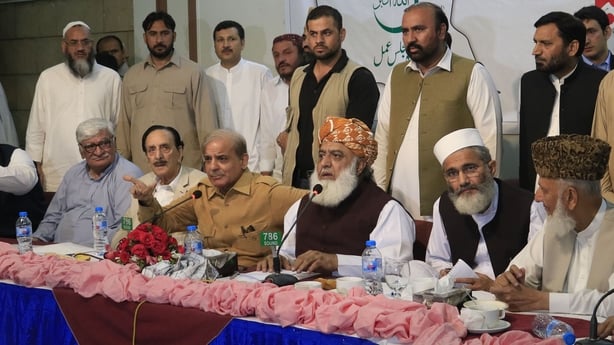Pakistan's likely new prime minister Imran Khan opened coalition talks with at least one smaller party and independent politicians, a spokesman said, following the announcement of full results of an election disputed by rivals.
Mr Khan's party scooped up 16.86 million votes in a better-than-expected performance, trouncing the party of jailed former premier Nawaz Sharif, which finished second with 12.89 million votes.
But the 116 seats won by Mr Khan's MPs were not enough to give him a majority in the 272-seat National Assembly without coalition partners, and he has ruled out both of the other two major parties, calling them corrupt.
Officials from Khans Pakistan Tehreek-e-Insaf (PTI), or Pakistan Movement for Justice party, said they were in talks with independent candidates and at least one other political party to form a coalition government.
The Muttahida Qaumi Movement (MQM), has dominated politics in the port megacity of Karachi for decades, and won six seats in the general election after the party split with its longtime leader, Altaf Hussain.
Mr Khan is expected to take the oath as prime minister around 14 August, which is Pakistan's independence day.
In a news conference, a spokesman for PTI, said that the party would form a government in Pakistan's most populous province of Punjab as well and there would be "good news" by tomorrow.
The poll has been marred by long delays in counting and complaints of rigging by Mr Sharif's Pakistan Muslim League-Nawaz(PML-N) party.
Some of the smaller religious parties are threatening street protests if the poll is not re-run.

Mr Khan has offered to investigate any claims of irregularities in the wake of Wednesday's poll, which Mr Sharif's PML-N andseveral other parties allege was skewed in favour of the former cricketer by Pakistan's powerful military.
European Union observers were critical of the political climate in the run up to the vote, saying there was not a level playing field. The United States voiced similar concerns.
Rival parties met last night as part of an alliance called the All Parties Conference where they called out the military for interfering in the polls.

